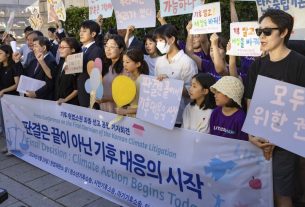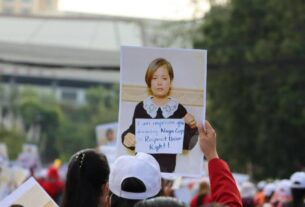As Saudi Arabia ramps up preparations for the 2034 FIFA World Cup and other large-scale infrastructure projects, rights groups are raising alarm over the preventable deaths of migrant workers on job sites across the kingdom. Advocacy organizations Human Rights Watch and FairSquare have released separate reports detailing safety violations and failures in accountability regarding worker fatalities.
Reports Highlight Preventable Deaths and Lack of Accountability
According to Human Rights Watch, migrant laborers—many from India, Bangladesh, and Nepal—have died due to electrocution, road accidents, falls from heights, and work-related illnesses, incidents they argue could have been avoided with proper safety measures.
The reports accuse Saudi authorities of frequently misreporting fatalities and failing to investigate deaths properly. This lack of transparency not only prevents families from receiving compensation but also leaves them uncertain about the circumstances surrounding their loved ones’ deaths.
One particularly troubling case involves a Bangladeshi worker who was electrocuted on the job. His employer allegedly withheld his body, insisting that compensation would only be provided if the family agreed to a local burial. Another family reportedly waited nearly 15 years before finally receiving compensation from the Saudi government.
Concerns as Saudi Arabia Pushes Major Development Projects
Saudi Arabia’s Vision 2030 initiative includes billions of dollars in infrastructure and development, such as the futuristic city Neom and extensive World Cup-related construction projects. Rights groups warn that, without improved protections, thousands more avoidable deaths may occur in the coming years.
FairSquare investigated the deaths of 17 Nepali contractors in Saudi Arabia over the past 18 months and cautioned that, without accountability, unexplained fatalities among low-paid foreign workers are likely to continue.
“In some cases, families are being pursued by lenders for debts incurred by their deceased relatives to finance their migration to the Gulf,” said James Lynch, co-director of FairSquare.
FIFA’s Response and Comparisons to Qatar
In response to criticism, FIFA defended its decision to award the 2034 World Cup to Saudi Arabia, citing the kingdom’s commitment to developing a workers’ welfare system and enhancing labor protections in cooperation with the International Labor Organization.
However, rights advocates remain skeptical, comparing the situation to Qatar’s 2022 World Cup, where thousands of migrant worker deaths were reported. Unlike Qatar—which established an oversight body called the Supreme Committee to monitor FIFA construction sites—Saudi Arabia lacks a similar regulatory mechanism.
“There’s no such committee like that in Saudi Arabia,” said Minky Worden, Human Rights Watch’s Director of Global Initiatives, who called for urgent labor protections.
As scrutiny intensifies, Saudi Arabia, FIFA, and international labor organizations face mounting pressure to implement concrete safety measures to prevent further deaths as World Cup preparations accelerate.
Human rights by Nick Youngson CC BY SA 3.0



